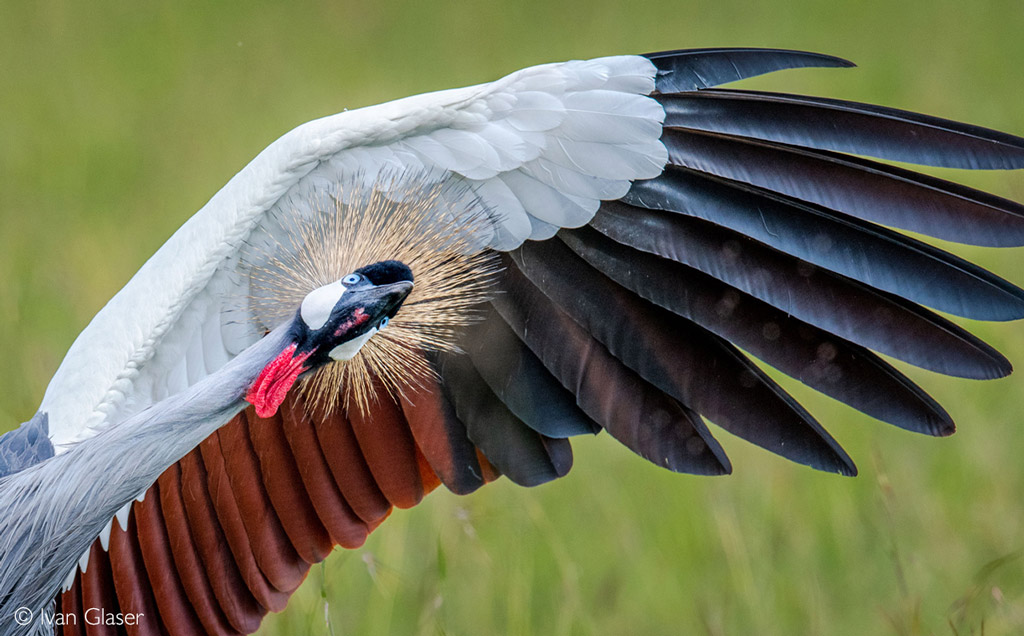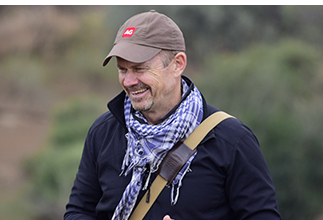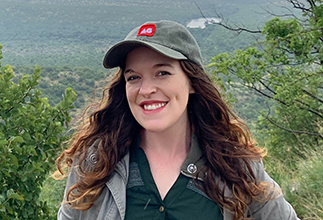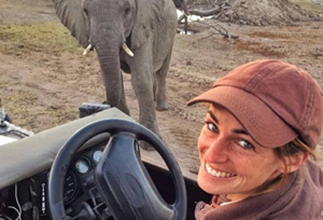
This is a copy of our weekly email newsletter. Subscribe here to receive the newsletter.
Fallen tusker + magical Bazaruto + human-wildlife conflict in Namibia

Turn up the mic. I have something to say.
Social media discussions about trophy hunting as a tool to save Africa’s wild places often collapse into bitter spats. How many keyboard warriors (on both ends of the ideological spectrum) go beyond the bickering to actually DO SOMETHING?
I know of one (non-tourism) company that leases a vast (60,000 ha) hunting concession in the Mana Pools area of Zimbabwe – that’s 36km of Zambezi River frontage. Over the last five years, they have paid the annual trophy hunting fees due to the government – and yet not one animal has been hunted. They also got rid of poaching, improved the roads and implemented successful local community projects. Wildlife populations have bounced back. They did this without fanfare because they believe it is the right thing to do. Now, this slice of paradise is ready for the next phase of its journey – responsible photographic tourism. There is no shortage of willing operators keen to set up shop. But someone must fund the ongoing legacy – by paying the annual trophy hunting fees. The required amount is significant at +/- USD300,000 per annum.
Are there any well-heeled individuals or anti-hunting charities out there that are prepared to step forward? Contact me for a private discussion. My team and I have no financial interest in this operation – just a deep-seated drive to help others work their magic. No chancers, please.
Keep the passion

Simon Espley – CEO, Africa Geographic
 TRAVEL DESK UPDATES:
TRAVEL DESK UPDATES:
We have two thrilling safaris lined up for those seeking a fiery introduction to some of southern Africa’s best destinations.
Cape Town and Kruger safari – 7 days:
Blend sophisticated, vibey Cape Town and the Cape Winelands with exceptional Greater Kruger Big-5 game viewing in this classic bucket-list safari. We recommend 7 days, but will adapt the safari to suit your needs. Budget, mid-range and luxury options are all on offer
Okavango Delta safari – 4 days:
This safari in the Okavango Delta is a great introduction to this watery paradise. The Okavango is a lush wilderness of grassy floodplains, islands and water channels, which are engineered and maintained by hippos & elephants. Don’t miss out on one of the most fascinating ecosystems on the planet
From our Editor – Taryn van Jaarsveld

This week we explore the magic of Bazaruto Archipelago National Park, a marine paradise off the coast of Mozambique. Bazaruto has all the ingredients of a sublime ocean-themed safari. Fascinating creatures, breathtaking scenery, and exceptional biodiversity define the five islands and marine habitats making up the archipelago, where diverse coral reefs thrive. If you’re keen for a barefoot adventure in one of the planet’s most beautiful seascapes, check out our first story below.
The answer to mitigating human-wildlife conflict in wild areas in Africa is no simple one. But understanding long-term trends associated with different types and frequencies of conflict incidents is essential in planning mitigation policies and aiding communities negatively affected by them. Our second story below examines research from Namibia, delving into the history of human-wildlife conflict incidents in the country between 2001 and 2019 to identify some crucial trends. An important story when trying to understand the complexities at play. See below.
Lastly, elephant Dida, tusker and matriarch of Tsavo National Park, and possibly Africa’s largest female tusker, has died of natural causes. Read more about this fallen giant in our third story.
Happy celebrating Africa!

Story 1
https://africageographic.com/stories/bazaruto-archipelago-national-park/
MAGICAL BAZARUTO
Mozambique’s Bazaruto Archipelago has the ingredients of a sublime safari: fascinating creatures, breathtaking scenery & amazing biodiversity
Story 2
https://africageographic.com/stories/human-wildlife-conflict-long-term-trends-in-namibia/
HUMAN-WILDLIFE CONFLICT
Research in Namibia on the type & frequency of human-wildlife conflict incidents between 2001–2019 can aid in mitigating future conflict occurrences
Story 3
https://africageographic.com/stories/tsavo-tusker-dida-dies-of-natural-causes/
FALLEN TUSKER
Dida, tusker of Tsavo National Park, and possibly Africa’s largest female tusker, has died. Read about her life and death
From our Scientific Editor – Jamie Paterson

There is a glorious moment at the end of the long dry season when the storm clouds build and release the first drops of precious, life-giving water. At this point, someone invariably says, “Ah, I love that smell,” and someone else is bound by the inexplicable laws of the Universe to nod sagely and reply, “There’s a word for that smell – it’s ‘petrichor'”. Happens every year and comes as a revelation to no one.
But did you know that the smell of petrichor is the scent of dead bacteria? Specifically, a compound called geosmin, which is released by dead microbes like Streptomyces bacteria in the soil. Apparently, the human nose is 200,000x more sensitive to geosmin than a shark is to blood in the water.
It is a pleasant smell, though.

 WATCH: Watch as Verity, a 15 year old lioness in Khutse Game Reserve in the Kalahari, Botswana, fends off a pack of wild dogs so she can get to the waterhole to drink. Female lions have a life expectancy of 15-16 years in the wild: Verity has done very well for a lion of her age in the harsh Kalahari environment (02:29). Click here to watch
WATCH: Watch as Verity, a 15 year old lioness in Khutse Game Reserve in the Kalahari, Botswana, fends off a pack of wild dogs so she can get to the waterhole to drink. Female lions have a life expectancy of 15-16 years in the wild: Verity has done very well for a lion of her age in the harsh Kalahari environment (02:29). Click here to watch
To comment on this story: Login (or sign up) to our app here - it's a troll-free safe place 🙂.![]()






